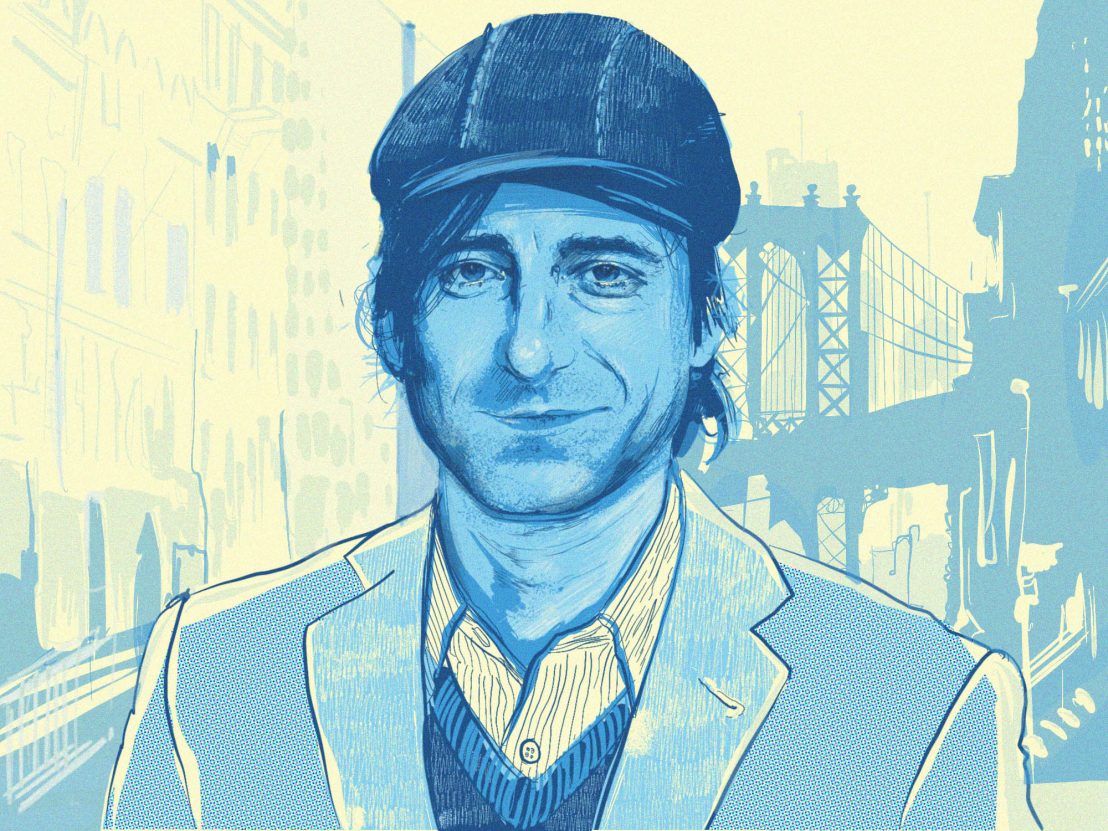
The writer/director of The Meyerowitz Stories reveals how he mixes the comic with the tragic.
At the 2017 Cannes Film Festival, Noah Baumbach’s The Meyerowitz Stories was one of two features in the main competition produced by the online streaming platform Netflix (the other being Bong Joon-ho’s Okja). We sat down with the writer/director to find out whether recent changes in movie distribution have had any effect on him, and how this new work links back to past greats such as The Squid and the Whale, Greenberg and While We’re Young.
LWLies: Where did you get the idea of putting Adam Sandler and Ben Stiller in the same movie? The films they star in usually allow for just one comedy actor.
Baumbach: This is the third movie where I’ve worked with Ben. Adam had come to me a few years ago asking to let him know if anything comes up. Then it turned out that Ben and Adam were thinking of working together at the same time as I was thinking that it’d be interesting to have them play brothers or something. Then we all had lunch together, and all that really came out of that lunch was that they would be brothers, and that there should probably be a physical fight between them at some point in the movie. I built the rest of the movie around that.
In While We’re Young and Mistress America, there are lines that are funny just by themselves. In The Meyerowitz Stories, Dustin Hoffman’s character, Harold, has this line “you should see the other dog” which is only funny because he repeats it so many times.
What I’ve wanted to do in a movie for a long time is, have somebody tell the same story or make the same joke more than once. The structure of the film, with the first part centring on one brother and the second part on the other, allowed to have Harold tell the same stories several times. And of course, he tells it differently to each brother, and he’s looking for different reactions from each, and each has a different reaction to what he expects. I finally found a way to do that with Meyerowitz Stories. Because I’ve written things like that in other movies then cut them out because they just seemed repetitive. But somehow, in this context, it felt like human behaviour.
How did you create the humour in this film? Was it all written or was there some improvisation?
The actors spoke the script exactly. I always work that way. I’ll rehearse and talk to the actors, and things will come from that – I don’t ignore them. But once we’re shooting the movie, I see our job as interpreting the script. The way it’s worded and written, the scenes really only work if you do the dialogue right. Even if you infer words or change things, it doesn’t sound right, it’s like music in that way. It sounds wrong to me. Similarly, there’s a lot of blocking, because there’s a lot of camera movements and a lot of movements in the scene generally, so it can take a long time to get it right. I sometimes do a lot of takes.
In some moments there are quick camera movements and a certain intensity that recalls The Squid and the Whale over, say, Mistress America. Why did you decide to return to that?
I don’t know specifically. I usually find that I have something – it can be a scene or a situation, anything really – that I just really want to put in a movie. For instance, I wanted to show what it’s like to be in a hospital. I felt like I hadn’t quite seen it in a movie before, that dynamic where somebody’s life and your own emotional life are all hanging in the balance, while at the same time nurses are ordering lunch right outside and talking about what they’re doing later.
It’s a complicated thing where I think there is humour – maybe a dark humour – but also something very poignant. That’s something that had been in my head before, but I hadn’t had a place to put it. It found its way with the brothers, so that’s how I found myself back in a sort of family world. But I think all of my movies are about family, even if they’re about friendships. There’s this kind of “the family we choose, the family we don’t choose” dynamic going on. And The Meyerowitz Stories is, of course, about the family we don’t choose.
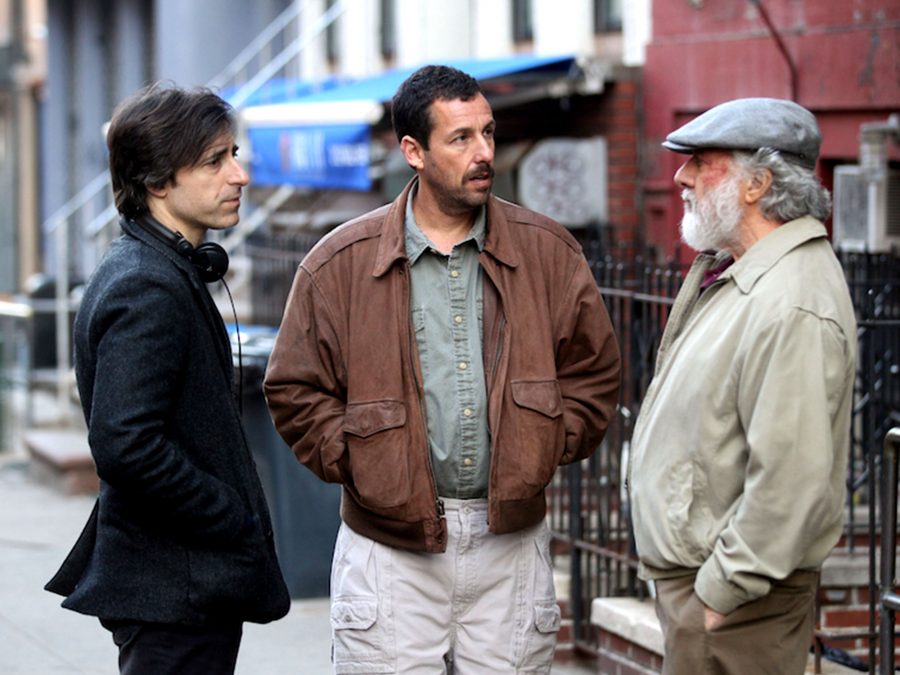
The are also some tragic moments, like a scene when Ben Stiller gives a speech at a museum. Did you ever consider making a straight drama?
It’s interesting you say that because people sometimes tell me, ‘Why don’t you just make something funny?’ I don’t distinguish between comedy and drama. Both in daily life and when I’m working, I see them working side by side. Everything is simultaneously one thing and the other. Or something could be funny to somebody, and not funny to someone else.
The scene you cited is a good example because when it starts, you hear people laughing and Ben starts to cry, but by the end of it, people start crying. That’s the thing as well: I wrote that scene, and it says in the script, ‘He’s crying uncontrollably, sloppily.’ I wanted to see that in a movie, because generally, crying in movies is controlled in some way. I wanted to see somebody with snot coming out of their nose and everything. And Ben did it. And it was one of these things where he knew he had to do it and go all the way. He was under a lot of pressure but he had to go all the way, because otherwise, it just wouldn’t work. But on the other hand, I don’t know what’s gonna happen. It’s a bit like working with an animal, you don’t know what they’re gonna do. But it was really beautiful what he did.
To come back to Ben Stiller and Adam Sandler, how did you deal with the dynamic between them?
I had to warn Ben, ‘You’re gonna get a script, you don’t show up until page 45, so just hang in there!’ Actually, a key thing for me in figuring out the script was discovering that it would be broken into sections. As the title suggests, I thought of it as a sort of collection of short stories that maybe have appeared in The New Yorker over the years, but now you’re buying the book, and there is a kind of narrative through-line, but maybe you read them all as stories individually before that.
And that discovery somehow cracked something for me because this structure, where each one of them deals with the father separately, it already says a lot about the family – the kids aren’t very close because they didn’t exactly grow up together. They’re not even in the same movie. You hear about one brother who’s sort of a shadow over the first section, and then he shows up. And that why I wanted to give Ben also a big introduction too, there’s a wall that literally breaks down in front of him.
Did you feel they had different acting styles?
Something you deal with as a director, with all actors, is that nobody is the same and everyone needs different things. You see some actors – Dustin is this way – chatting with the guy with the slate, making jokes and everything, right up to the moment you say, ‘go’. Then he’s the character. He needs that to relax. Other actors like to be quiet, in their own zone. I like to have a relaxed set anyway – it’s a small set, there are no phones, there’s no director’s chair, there are no people who aren’t actually working on anything.
I don’t say ‘action’ because to me, that just reminds you it’s a movie. I like to just let the scene sort of happen as much as I can, given that there are all these people and the lights, and that it’s a totally fabricated situation. But Ben and Adam have known each other a long time, they’re friends and I think that helped too. They had this sort of immediate camaraderie. And because they’re in a lot of the movie not together, and we shot those sections first – we pretty much shot the film in order – they actually were kept apart for a while. But they’re so admiring and respectful of each other, there’s never any danger that one is going to bump up against the other’s methodology.
Watching the film on the big screen was a great experience. How do you feel about it being released via Netflix?
I agree with you. Well, you know, I made the movie independently, to be shown on the big screen, like all my movies. But Netflix acquired it and they’ve been really great and supportive. But I hope as many people as possible see it the way you saw it.
Published 12 Oct 2017
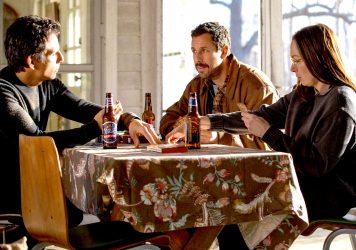
Noah Baumbach gets the best out of Adam Sandler and Ben Stiller in this sensitive and witty comedy.
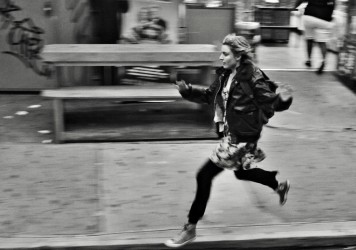
By Anton Bitel
Ahoy sexy! In which the great Greta Grewig stakes a convincing claim to the thrown of most loveable living screen actress.
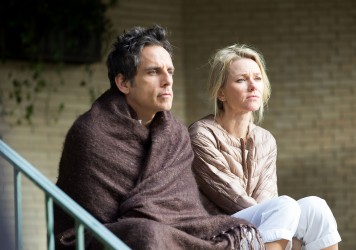
Generational drift and the scourge of hipsterism are examined in Noah Baumbach’s bittersweet comedy of manners.